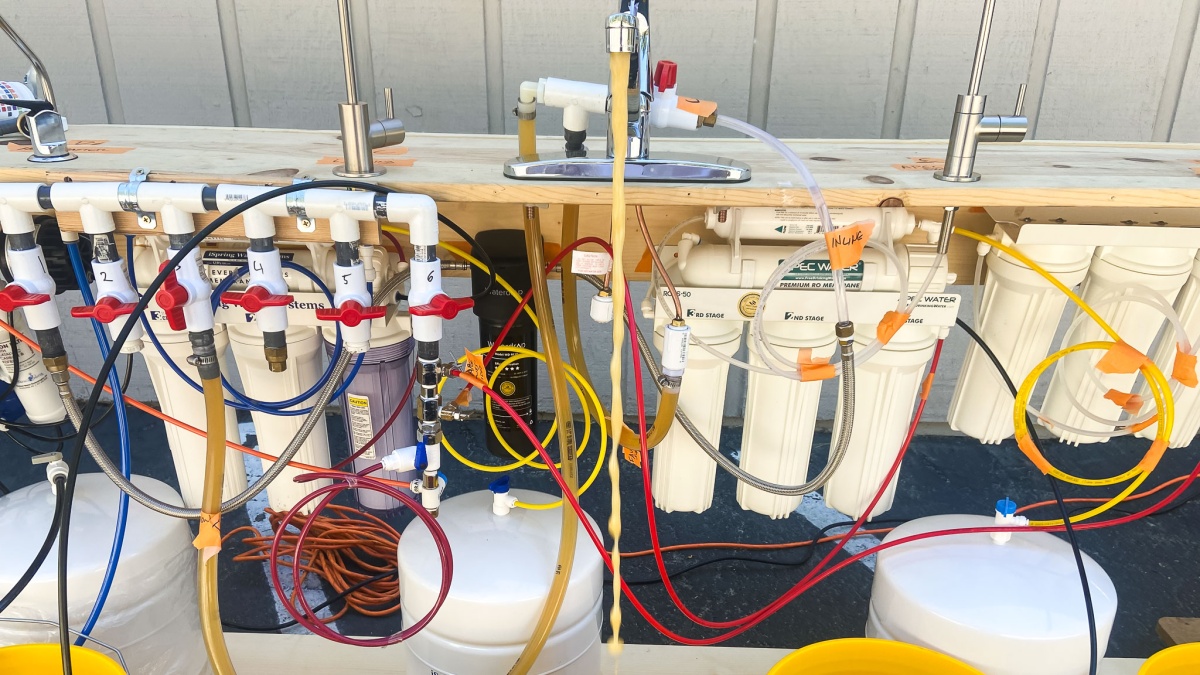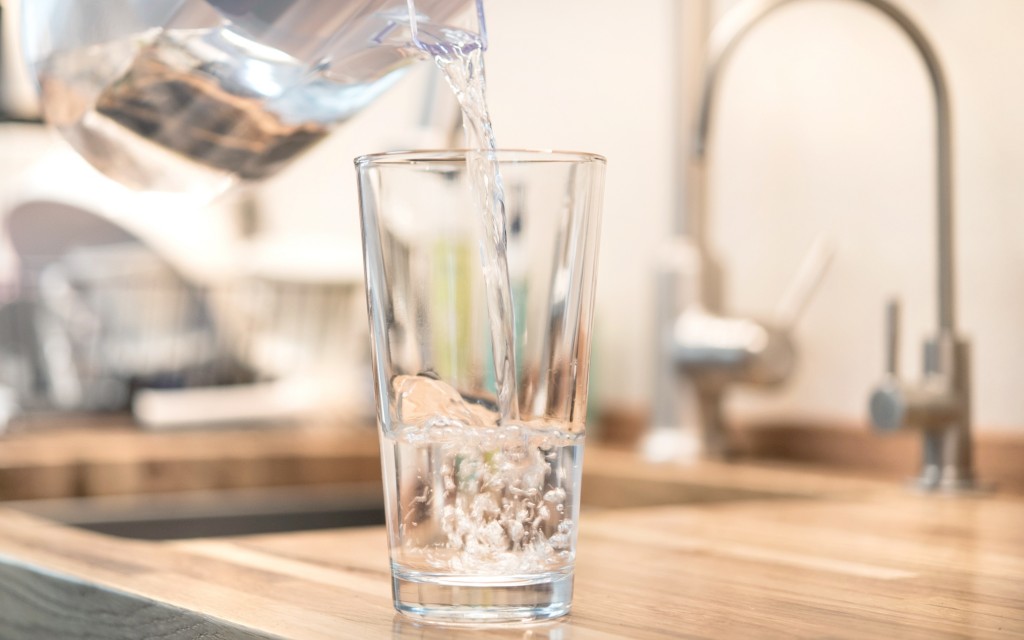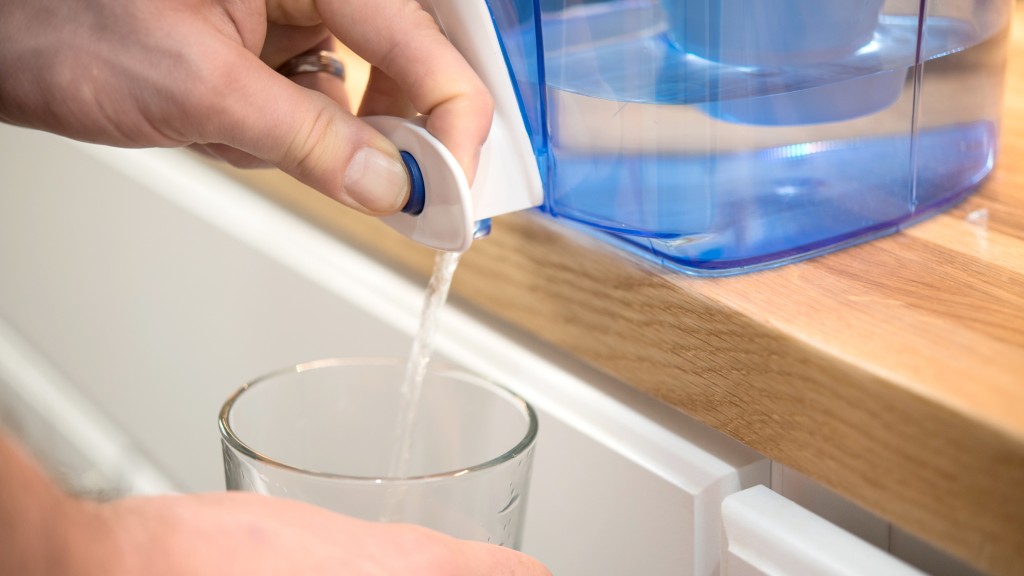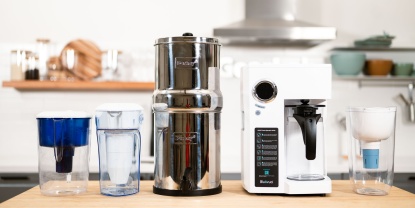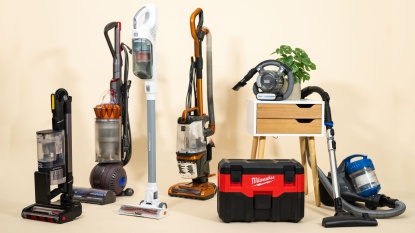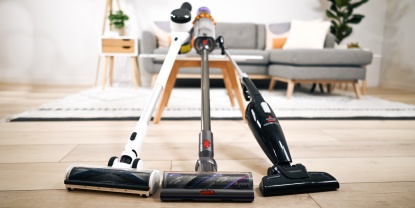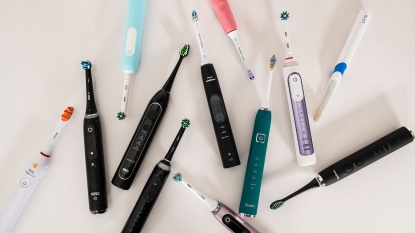Not a fan of how your tap water tastes and want to ensure it's free of contaminants? If this is the case, then a home water filter may be a great purchase. We conducted extensive research and bought the most promising under the sink, countertop, and pitcher water filters currently available to test head-to-head. We conducted a trio of impurity removal tests to see how well each filter removed lead, chlorine, and minerals from water — even sending our water samples to an independent water quality lab for analysis. We also had a panel of judges evaluate how each filter made water taste, whether or not they could successfully remove undesirable flavors or if they added any unsavory ones, and tested and scored the flow rate of each filter. In the process, we put this guide together to go over the different types of water filters and our experience with them and aid you in shopping for a new one. If you are more interested in the results of specific products, head on over to our comprehensive Water Filter Review to see which filter is truly phenomenal and which gives you the best bang for the buck.
Unfortunately, all of these filter are designed to remove contaminants from potable water, making them unsuitable to bring on your next camping trip for purifying water from lakes and streams. These home water filters aren't necessarily tested and certified for removing things like Cryptosporidium or Giardia from the water, which can make you seriously sick. If you are looking at filters for the backcountry, then check out OutdoorGearLab's review of water filters here.
Types of Water Filters
As soon as you start researching water filters for your home, you will find that there are predominately three different types: pitcher, under the sink, and countertop. We tested products from all three categories, finding distinct trends for each type, discussed below.
Under the Sink
By far the largest and most expensive of all three types, under the sink filters are meant for permanent installations, usually adding a dedicated faucet next to your existing one just for filtered water. These products remove contaminants from your water very well, with the top under the sink models earning some of the highest scores of the group. Consequently, they can make your tap water taste great and have decently high flow rates, something that is definitely a nice feature when filling up a large pot or coffee carafe.
Unfortunately, the installation process can be a bit complex, with plenty of different hoses connecting the various filter components that all have to be made watertight and free of leaks. Additionally, you may even have to drill a hole in your countertop to install the separate faucet — a task that can be quite daunting to your average DIYer, depending on the type of countertop you have. As mentioned above, filters of this style are typically the most expensive, ranging anywhere from about $100 to $600. It can also be a little more pricey to replace the consumable filters on these products than the faucet mount or pitcher filters.
Countertop
Countertop water filters are compact, portable devices that purify tap water. They use various filtration methods, such as activated carbon, reverse osmosis, or UV light, to remove contaminants like chlorine, lead, bacteria, and other harmful substances.
One of the primary advantages of these filters is their ease of installation. Most models are simple to set up and require no changes to your existing plumbing. Their compact size also adds to their portability, making them perfect for apartments or homes with limited space. They can be easily moved and reinstalled as needed.
However, countertop water filters come with their own set of drawbacks. Their compact size means they can only purify a limited amount of water at a time. This might not be sufficient for larger households or for those who consume a lot of water daily. The upfront cost can be prohibitive. Lastly, from an aesthetic standpoint, not everyone might appreciate having a water filter sitting on their countertop. They take up space and may not always blend well with the overall kitchen decor.
Pitcher
What most people think of when they hear home water filters, we found the pitcher filters to be our favorite and the best bet for most people. In fact, we found one of the filter pitchers to be the best overall at extracting impurities, outperforming under the sink models that cost over ten times as much. These models are on the less expensive side, usually costing between $25 to $35. Pitcher filters have one of the highest flow rates while pouring, but they can take a bit of time to refill and filter more water, if you need more water than the capacity of the pitcher.
All in all, a pitcher filter fits the needs of most people the best, unless you require filtered water constantly. If that is the case, the task of constantly refilling the pitcher and waiting for it to filter can prove quite troublesome, and an more permanently installed product might be a better fit.
Choosing the Right Water Filter
Now that you have an idea of the different types of filters available, it's time to determine which would be the best, bringing us to our first point below.
Step 1: What Do You Think is in Your Water?
First off, it's worth revisiting why you even want a water filter, such as thinking about what is actually in your water that you want to remove. Most of the products that we tested in the review are designed for relatively run-of-the-mill contaminants, in fairly low doses. This makes them a great option if your tap water just doesn't taste great, or if there are slight tastes of contaminants that you would like to remove, such as a slightly salty, metallic, or chlorinated taste.
However, if your tap water is exceptionally discolored, tastes totally unpalatable, or you know for a fact that there is a high likelihood of large concentrations of certain contaminants, it is time to consult your local water district and enlist professional help. For example, if you know that the pipes in your building are very old, making them more likely to be made of lead, and your tap water is black or brown with a metallic taste, you should seek out help rather than simply purchasing one of these filters. While these filters will mitigate most contaminants, the health risks are simply to great in some cases to leave it up to chance, and ensuring your water is safe to drink is critical. This could involve replacing aging components of your plumbing, buying specific filters for the contaminants in your area, flushing out the pipes, and confirming that your tap water is safe by sending samples to a local water quality lab.
Step 2: Permanent Install or Pitcher in the Fridge?
The next decision to make is deciding between an under-the-sink or a faucet mount filter. We found that some faucet mount filters did a very good job at filtering out chlorine, making them a decent option if this is the primary contaminant you are concerned about. Many water supply districts need to increase the amount of chlorine to treat water in the warmer months, so if you have been noticing a slight tinge of chlorine as the weather gets warmer, then a faucet mount might be a fantastic fit.
If you want to remove more than just chlorine, then — in our experience — you are limited to a pitcher or an under-the-sink model. This is also closely tied to your budget and your general DIY skills for the amount of installation required.
Starting off, if you want to spend less than $100, a pitcher filter is your best bet. While there are a few under-the-sink filters in this range, they performed exceptionally poorly and aren't really worth it. Pitchers are also a good choice if you only intermittently need filtered water.
If you can't bear the thought of sacrificing some fridge or counter space to a pitcher, don't want to always refill, and are willing to spend in the neighborhood of $200-$300, then an under-the-sink model is a reasonable option. However, if the installation process for these filters is daunting for you, then you should be prepared to spend even more for a handyman, contractor, or plumber to come out and install it for you.
Conclusion
Hopefully, this article has cleared up some of the confusion surrounding water filters and has helped you find the perfect filter to get your tap water tasting clean, crisp, and refreshing! For a more detailed discussion of our testing procedures and methods, take a look at our How We Test article, or check out our comprehensive review of water filters linked below to see which products scored the best and why!

